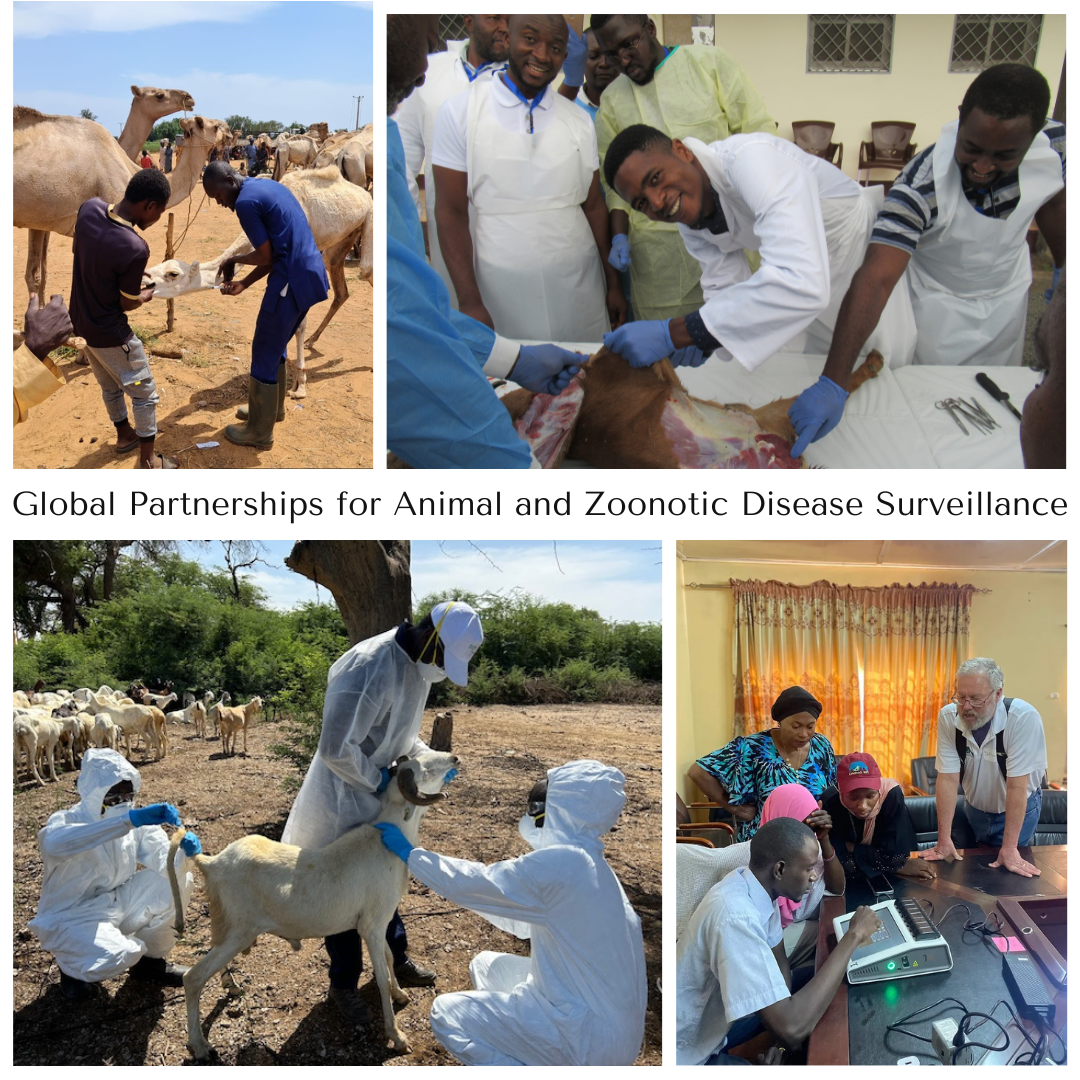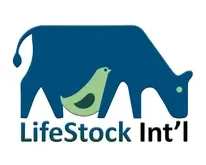About the Symposium
The International Symposium on Transboundary and Emerging Zoonotic Diseases is designed to showcase many aspects of the partner institutions’ findings, to serve as a forum for scientists far and wide to present their own findings, and to interact and network extensively with partners. In addition, keynote speakers, each a well-recognized leader in a specific aspect of transboundary or emerging diseases, will present on topics to help guide the overall discussions. Abstracts are welcome for both oral and poster presentations.
About the GPAZDS
The Global Partnership for Animal and Zoonotic Disease Surveillance (GPAZDS) is a USDA/APHIS project funded through the National Bio and Agro Defense Facility (NBAF) that creates collaborations with partner laboratories in countries where high-consequence transboundary animal and zoonotic diseases are endemic or emerging. The main goal of GPAZDS is to foster and strengthen international partnerships and collaborations for surveillance and timely detection of transboundary animal and zoonotic disease threats. A total of nine institutions, in Africa, Asia, and the Middle East, are participating in the Partnership, with each institution implementing projects designed to enhance diagnostics or surveillance of a particular pathogen and build or strengthen local capacity. The various projects are yielding valuable information about the risk of these pathogens, markedly enhancing partner capacity, and providing the National Veterinary Services Laboratories’ Foreign Animal Disease Diagnostic Laboratory (NVSL FADDL) with valuable specimens for diagnostic test development to enhance US preparedness.

Registration is open!
Registration is now open for the International Symposium on Transboundary and Emerging Zoonotic Diseases! Please use the below link to submit your registration for the meeting.
- Regular Registration Rate: $300 USD
- Student Rate: $150 USD
Registration includes lunch each day of the 3-day conference and one conference dinner.
There will be 13.5 hours of CE credit offered for this Symposium. More information to follow.
The GPAZDS project focuses on major high-consequence animal and zoonotic pathogens such as:
- African swine fever virus
- Foot-and-Mouth Disease virus
- Classical swine fever virus
- PPR
- Lumpy skin disease virus
- Rift Valley fever virus
- Filoviruses (Ebolavirus, Marburg virus)
- Crimean Congo hemorrhagic disease virus
- Henipaviruses (Nipah and Hendra)
Virtual option
If you can't join us in person, there will be a virtual option to participate in the Symposium and receive your CE credit.
- Regular Registration Rate, Virtual: $100 USD
- Student Rate, Virtual: $50 USD
Submit an abstract
The Planning Committee is accepting abstract submissions for presentation at the Symposium.
Please review the Abstract Guidelines before composing and submitting your abstract.
Abstract submission will close on 18 April 2025.
Poster or podium presentations at this meeting will be invited to submit a manuscript to a “Transboundary and Emerging Zoonotic Diseases”, a Special Issue of Pathogens. For more information, visit the Special Issue website.
Symposium Program
Speaker Biographies
Logistics
Venue
The symposium will be held at the Manhattan Conference Center, 410 South 3rd Street, Manhattan, KS 66502.
Travel
- Manhattan Regional Airport (MHK) - Located approximately 5 miles southwest of Manhattan, KS, MHK is served by American Airlines, which offers nonstop flights to Chicago-O’Hare and Dallas/Fort Worth. The airport is also served by Hertz, Enterprise, and Fox Rental Car companies.
- Kansas City International Airport (MCI) - Manhattan, KS, is located approximately 130 miles west of Kansas City International Airport (MCI), which is served by all of the major US airlines and car rental companies. I-70 is the primary connection between metro Kansas City and Manhattan, KS. Depending upon traffic, the approximate drive time is 2 hours.
Accommodation
There is a room block at the Hilton Garden Inn at a special rate of $115 per night plus applicable taxes and rates. Book your accommodation by April 5 at the hotel website.
FAQs
Are any meals provided during the Symposium?
Lunch will be provided each day of the Symposium. Dinner will be provided one evening of the Symposium.
What is the dress code for the Meeting?
Suggested dress code is business casual.
Keynote Speakers



Name
Biography
Name
Biography
Name
Biography



